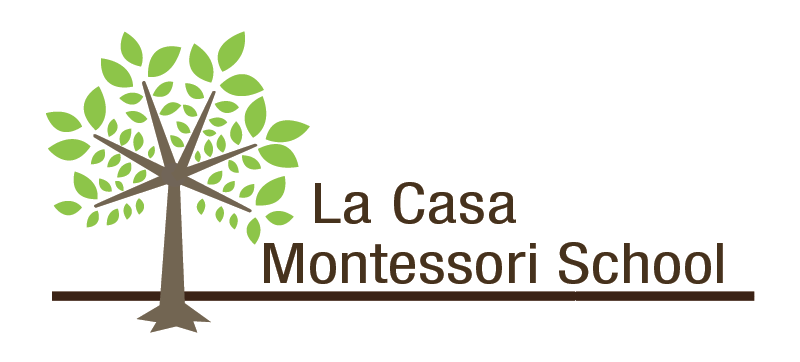You’ll be amazed by what your child can learn
The goal of a Montessori education is to spark the development of the whole child, including cognitive, emotional, social, and physical development.
“La Casa is a wonderful gem of a school, with instructors who care deeply for their students’ education and well-being. The Montessori environment, coupled with Spanish instruction, both challenges and supports your child in a unique way. There is a great emphasis on the development of the whole child and you can feel that in the interactions from the teachers to the parents.”
In 1906, Dr. Maria Montessori opened a childcare center in Rome called Casa dei Bambini–Italian for “Children’s House.” Her goal was to foster the children’s natural desire to learn.
At La Casa Montessori, we apply the principles of the Montessori Method consistently, starting with the classroom or “prepared environment.”
In the prepared environment, your child will:
Be free to move around the classroom and choose their next learning material
Work at their own pace, with guidance from teachers
Absorb knowledge from their environment, their teachers, and their fellow students
Focus on age-appropriate tasks for long periods (such as completing a puzzle, watering plants, or sweeping the floor)
In this way, we help children discover themselves, reflecting on their likes, dislikes, natural abilities, and needs. Ultimately, we prepare them to become self-directed and confident critical thinkers who work collaboratively and behave with integrity.
The Montessori Classroom Prepared Environment
Within each classroom at La Casa, the materials (or "works" as the teachers and children say) are used as tools for children to learn at their own pace. Many of these works present abstract ideas presented in a very concrete, three-dimensional way, laying the foundation for more advanced learning.
Classrooms are designed to support the following disciplines that are prioritized within the Montessori Method:
Practical Life: This area of the curriculum is designed to invite the young learner to act and work on real-life tasks that foster independence, coordination, order, and concentration. It is the “doorway” to the Montessori curriculum.
Sensorial: The sensorial works help the child to train and refine the five senses. Dr. Montessori discovered that by helping children to order, compare, and classify sensory stimulation, their intellectual development was greatly assisted and all future learning became more meaningful and useful.
Mathematics: The central purpose of the math works in the early years is to lay the foundation for later cognitive development and to prepare for the gradual transition to abstract thinking. The primary values of these earlier activities in mathematics are found in the way they transform ideas into actions on concrete works.
Language: Language development, and specifically immersion, is a concern of the entire Montessori classroom. Many activities in other areas, as well as with a large group, foster vocabulary development, communication skills, and writing and reading readiness.
Science: Science is an integral element of the Montessori curriculum. Among other things, it represents a way of life: a clear-thinking approach to gathering information and problem-solving.
Grace and Courtesy: Grace and courtesy lessons are presented daily. Children are especially drawn to these activities because of their sensitive periods for learning precise movements and social skills, as well as their need to adapt and belong.
Music/Creative Movement/Art: Music, movement, and the arts are also important parts of the La Casa Montessori curriculum. They offer children ways to express themselves, their feelings, experiences, and ideas.
History/Geography/Cultural Awareness: We introduce history and geography as early as three years old. The youngest students work with specially-designed maps, specifically beginning to learn the names of the world’s continents and countries. Children gain an awareness of the world around them by exploring other countries, and their customs, food, music, climate, language, and animals.
“La Casa is a warm, kind, happy place where your children are loved and taught academics in a way that supports how they instinctively want to learn ”
You can read more about the history of Dr. Montessori’s incredible life and work at the American Montessori Society website.




